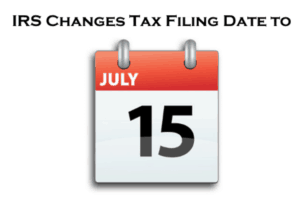 As you know, we here at Grossman St. Amour have all been working from our home offices since the middle of March. Although our logistics have changed, we continue to complete your tax returns as we have in the past.
As you know, we here at Grossman St. Amour have all been working from our home offices since the middle of March. Although our logistics have changed, we continue to complete your tax returns as we have in the past.
We are writing to make sure you have read or learned about the new deadlines that have been granted by the Internal Revenue Service and the various state governments. Most importantly, we want you to know that your returns will not need to be completed by April 15th this year except as noted below.
The IRS has extended the normal deadline for individuals to July 15, 2020. This includes both the requirement to file your return and to pay any taxes owed, so you won’t be charged any penalties or interest during the extension period.
Additionally, Fiduciary, Trust, Gift and C Corporation tax returns have also been extended to July 15th.
Everyone gets this extension automatically — you do not have to request it or have been personally affected by the coronavirus.
The deadline for IRA and HSA contributions for the 2019 tax year has also been extended to July 15, 2020.
The deadline for April 15 estimated tax payments has also been extended to July 15. However, the regularly scheduled June 15 estimated tax payment deadline has not been extended.
Some states, including New York State, have extended their own deadlines to match the IRS extension, while others have not extended them at all. We will check with your state’s tax agency to find out what state extensions are being offered, if any and make sure all of your returns are filed timely.
The Federal extension covers only income taxes, not employment taxes or any other tax deadlines.
The deadline for partnership returns (Form 1065) and S corporation returns (Form 1120S) did not get extended. Any Federal returns that were required to be filed on the earlier March 16 date should have been filed by then to be considered on time, as well as any returns with filing or payment due dates other than April 15.
Individuals can request an additional extension from July 15 to October 15, 2020, by filing Form 4868. Businesses and trusts who need additional time can file Form 7004. However, in both cases, any extension beyond July 15 only extends the time to file your return. You still must pay any taxes owed by July 15 in order to avoid penalties and interest.
Thank you for your understanding during this difficult period. We will make every effort to file your tax returns as quickly as possible. As always, if you have any questions or concerns, please contact us.
Our firm provides the information on this website and social media platform for general guidance only, and does not constitute the provision of legal advice, tax advice, accounting services, investment advice, or professional consulting of any kind. The information provided herein should not be used as a substitute for consultation with professional tax, accounting, legal, or other competent advisers. Before making any decision or taking any action, you should consult a professional adviser who has been provided with all pertinent facts relevant to your particular situation. Tax articles on this platform are not intended to be used, and cannot be used by any taxpayer for the purpose of avoiding accuracy-related penalties that may be imposed on the taxpayer. The information is provided “as is”, with no assurance or guarantee of completeness, accuracy, or timeliness of the information, and without warranty of any kind, express or implied, including, but not limited to warranties of performance, merchantability, and fitness for a particular purpose.

